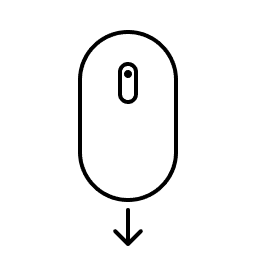Snippets about: Incentives
Scroll left and right !
Are People Inherently Altruistic?
“Are people innately altruistic?" is the wrong kind of question to ask. People are people, and they respond to incentives. They can nearly always be manipulated--for good or ill--if only you find the right levers.”
Section: 1, Chapter: 3
Book: Super Freakonomics
Author: Steven D. Levitt , Stephen J. Dubner
What Do Doctors And Terrorists Have In Common?
While doctors and terrorists operate in vastly different fields, they share one key trait - their individual actions directly impact the lives and wellbeing of others. Sadly, in both professions, misaligned incentives often lead to poor outcomes:
- ER doctors frequently fail to consistently wash their hands between patients, contributing to hospital-acquired infections that kill 100,000 people per year. Doctors lack strong incentives to take this precaution.
- Terrorists are not deterred by the massive societal damage caused by their attacks because they do not bear those costs directly. In fact, the whole point is to inflict pain on others.
The authors argue that restructuring incentives to ensure people fully internalize the positive and negative impacts of their choices could help improve outcomes in medicine, terrorism, and beyond. For example, hospitals that tie physician compensation to infection reduction metrics see hygiene compliance rise.
Section: 1, Chapter: 2
Book: Super Freakonomics
Author: Steven D. Levitt , Stephen J. Dubner
Discovering Your Payoffs For Staying Stuck
Often, we stay in unfulfilling situations because there are hidden "payoffs" that keep us there. These payoffs might include a sense of security, avoiding the discomfort of change, or getting to be right. Jeffers recommends making a list of all the payoffs you get from staying stuck in some area of your life. Once you're aware of these payoffs, you can consciously choose to let them go and move forward. Awareness is the key to breaking free from self-imposed limitations.
Section: 1, Chapter: 4
Book: Feel The Fear And Do It Anyway
Author: Susan Jeffers
Why Are Hospital Infections So Common?
Hospital-acquired infections kill an estimated 100,000 patients per year. One major culprit - doctors failing to wash their hands between patients. This is a classic case of misaligned incentives:
- Doctors don't bear the full cost of skipping a handwash (patient bears risk of infection)
- Handwashing takes time, creating a disincentive for busy doctors to comply
More broadly, the handwashing case study illustrates how smart incentive design can solve stubborn problems. It also shows how data and behavioral economics can be applied to reduce medical errors and improve patient outcomes. Similar principles could extend to other stubborn challenges.
Section: 1, Chapter: 4
Book: Super Freakonomics
Author: Steven D. Levitt , Stephen J. Dubner
Want To Prevent Terrorism? Make Them Buy Life Insurance
Based on an analysis of data on captured terrorists and would-be terrorists, Levitt and Dubner identify some common traits. Compared to the average person, terrorists are more likely to:
- Rent rather than own a home (due to not expecting to live long)
- Not have a life insurance policy (since it doesn't pay out for suicides)
- Make purchases in cash rather than credit/checks (to avoid paper trail)
- Have multiple ATM withdrawals of just under $3000 (to evade mandatory reporting limits)
The authors propose that banks and insurance companies could potentially use these insights to identify individuals at high risk of committing terrorist acts based on their financial and personal records. Of course, such profiling raises major privacy concerns and could ensnare some innocent people exhibiting these same behaviors. But in theory, companies and law enforcement could leverage this data to proactively intervene with would-be terrorists.
Section: 1, Chapter: 2
Book: Super Freakonomics
Author: Steven D. Levitt , Stephen J. Dubner
The Cobra Effect - Why Child Car Seats Don't Work
Child car seats are a well-intentioned innovation, mandated by law in all 50 U.S. states. But a closer look at the data reveals they are shockingly ineffective at their stated goal of reducing child auto fatalities:
- Federal studies find car seats are only about 2% more effective at preventing fatalities than regular seatbelts
- Observational data shows that 80-90%+ of car seats are installed or used incorrectly, rendering them ineffective
- Car seat laws "crowd out" potentially more impactful solutions like driver safety training or stronger DUI enforcement
The authors dub this "the cobra effect" after an apocryphal tale of how a bounty on cobra skins backfired when people started breeding cobras. The lesson is that even the most well-meaning attempts to solve problems through legislation can have perverse unintended consequences. Policymakers must rigorously evaluate actual efficacy using data, not just rely on good intentions. More broadly, this story cautions against top-down mandates and argues for locality in problem-solving.
Section: 1, Chapter: 2
Book: Super Freakonomics
Author: Steven D. Levitt , Stephen J. Dubner
Unintended Consequences Of Drunk Driving Laws
Conventional wisdom holds that stricter drunk driving laws make roads safer. But Levitt and Dubner argue the data tells a more nuanced story:
- Drunk driving fatalities have fallen sharply since the 1970s, but part of this is due to safer cars/roads, not just tougher laws
- Some studies find lowering the blood alcohol limit from .10 to .08 had no effect on accidents
- Highly publicized crackdowns may simply divert drunk drivers to back roads with less enforcement
- Mandatory license suspensions can inadvertently push offenders to drive illegally
The authors don't dispute that drunk driving is dangerous and should be illegal. But they argue that policymakers often fixate on passing ever-tougher laws rather than rigorously evaluating what actually works to change behavior. They advocate for more emphasis on data, experimentation, and measuring outcomes vs. just inputs. The drunk driving case becomes a metaphor for how good intentions don't always equal good policy.
Section: 1, Chapter: 4
Book: Super Freakonomics
Author: Steven D. Levitt , Stephen J. Dubner


